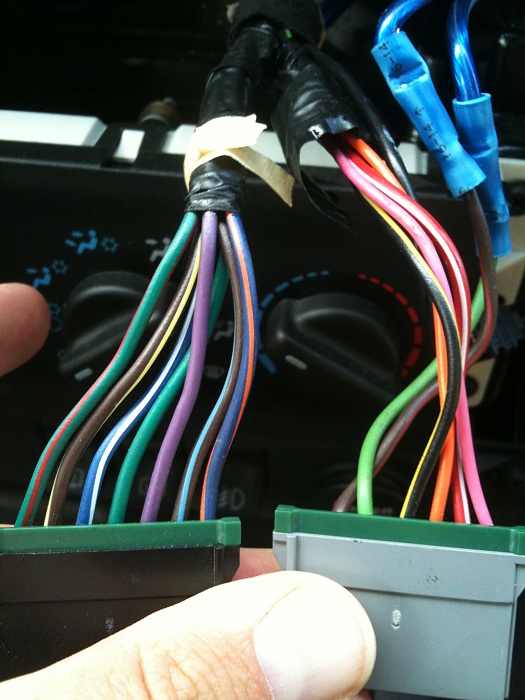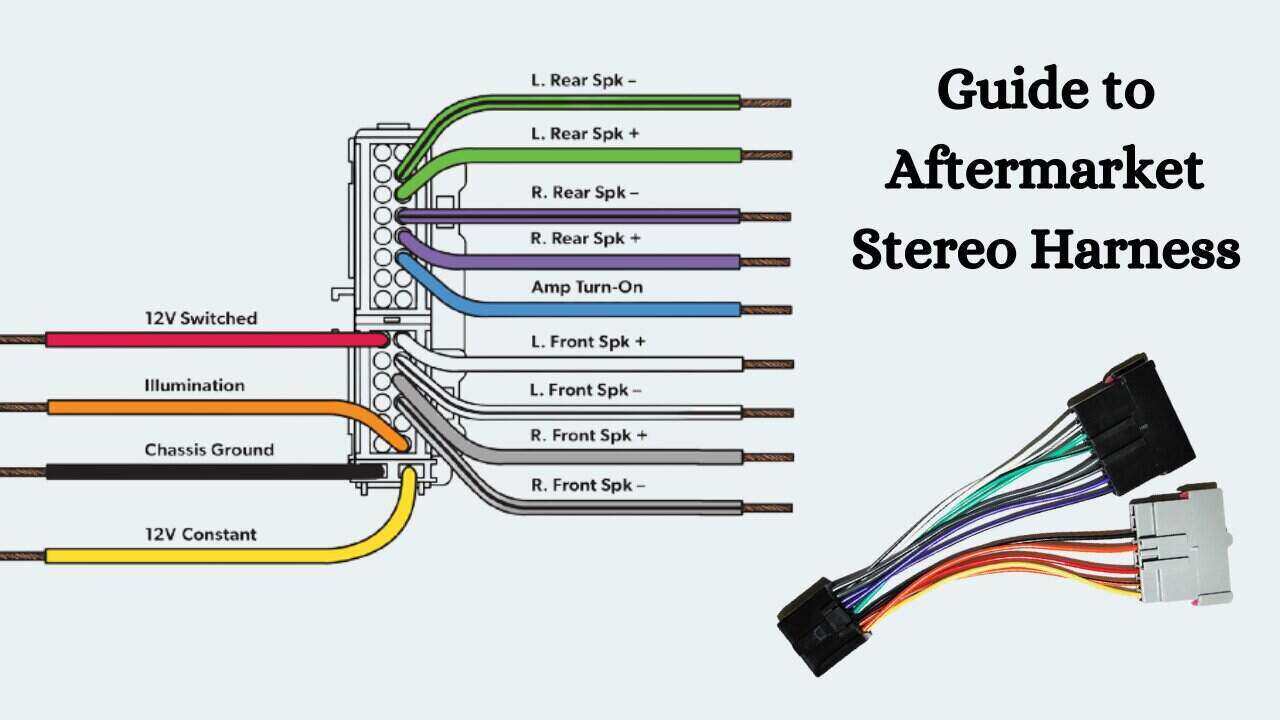Unlock Your Car's Audio Potential: Mastering Speaker Wire Color Codes
Ever dreamt of crystal-clear tunes booming from your car stereo? Imagine transforming your daily commute into a concert-quality experience. It's within reach, and the secret lies in understanding the cryptic language of car stereo speaker wire color codes. This seemingly small detail can be the difference between a fantastic sound system and a frustrating mess of static and silence.
Connecting your car speakers correctly is like wiring up the nervous system of your vehicle's entertainment. Get it right, and your music comes alive. Get it wrong, and you risk damaging your equipment and enduring a subpar listening experience. This guide is your roadmap to navigating the world of automotive speaker wiring, empowering you to achieve that rich, powerful sound you crave without breaking the bank.
Why bother with DIY when you could pay a professional? Well, for starters, you'll save a chunk of cash that you can put towards better speakers or other upgrades. Plus, there's a certain satisfaction that comes from tackling a project yourself and coming out victorious. Think of it as a small investment of time that pays dividends in both improved sound and increased self-sufficiency.
Unfortunately, there's no universal standard for car stereo speaker wire color codes. Different manufacturers use different conventions, adding a layer of complexity. This is where a bit of research and careful observation come into play. This article will equip you with the knowledge and tools you need to decipher these codes, regardless of your car's make and model.
Decoding the speaker wire colors essentially involves matching the positive and negative wires from your stereo to the corresponding terminals on your speakers. Getting the polarity right is crucial for optimal sound quality. A reversed connection can lead to phase cancellation, resulting in a weaker, less defined sound. Understanding the color code is your key to avoiding this common pitfall.
The history of car stereo speaker wire color codes is somewhat murky, arising from the need for a simple way to identify speaker polarity. Over time, various manufacturers adopted their own systems, leading to the current lack of standardization. This underscores the importance of consulting your car's wiring diagram, often found in the owner's manual or online resources.
As an example, a common color code uses gray for positive (+) and gray with a black stripe for negative (-) on the front left speaker, while the front right might use white (+) and white with a black stripe (-). Rear speakers often utilize green and purple variations. However, these are just examples, and your car's wiring could be entirely different.
One benefit of understanding these codes is avoiding potential damage to your stereo or speakers. Incorrect wiring can lead to shorts and blown fuses. Another advantage is achieving optimal sound quality. Correct polarity ensures that your speakers work in harmony, delivering a full and balanced soundstage. Finally, you save money by doing it yourself.
Your action plan should start with identifying your car's make and model. Then, locate the wiring diagram. Once you have the code, carefully match the wires to the speaker terminals. Test the system to ensure correct functionality.
Advantages and Disadvantages of Standardized Wiring Codes
| Advantages | Disadvantages |
|---|---|
| Simplified installation | Lack of a universal standard |
| Reduced risk of errors | Requires research for each car model |
| Easier troubleshooting |
Best practices include double-checking connections, using appropriate connectors, securing wires to prevent rattling, and testing the system at low volume before cranking it up.
Real-world examples can be found in online forums and car audio communities. Many enthusiasts share their experiences and wiring diagrams.
A common challenge is dealing with aftermarket stereos and speakers. Solutions involve using wiring harnesses and adapters to bridge the gap between different wiring conventions.
FAQ: What if my car’s wires don’t match any code? Consult your car's manual or online resources. How do I test speaker polarity? Use a simple battery test. What gauge wire should I use? This depends on your system’s power requirements.
A handy trick is to use colored tape to label wires if they are not clearly marked.
Mastering car stereo speaker wire color codes is a valuable skill for any car audio enthusiast. It empowers you to take control of your car's sound system, saving money and achieving optimal sound quality. By understanding the importance of correct wiring, following best practices, and utilizing available resources, you can transform your daily commute into a truly enjoyable auditory experience. Don't settle for mediocre sound; take the time to learn the code and unlock the full potential of your car's audio system. Now go forth and conquer those wires!
Conquering cape towns vehicle license renewal maze
Unlock english fluency your guide to free esl reading comprehension worksheets pdf
Ageless style hairstyles for women over 80














